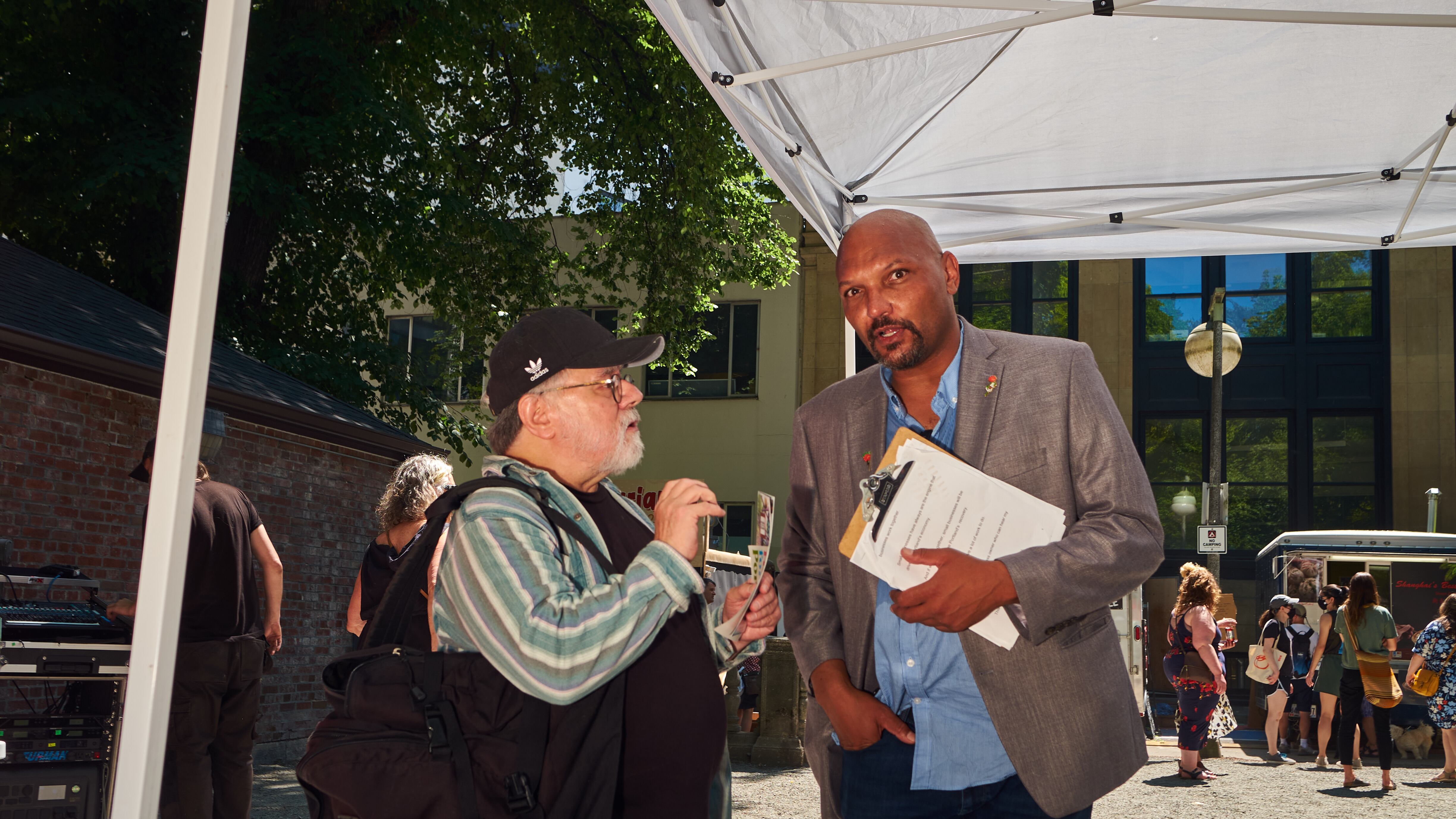City Commissioner Mingus Mapps wants to install an artificial intelligence system within 90 days to take around 20% of the non-emergency calls currently answered by dispatchers at the Bureau of Emergency Communications.
Mapps calls the city’s marriage of emergency and non-emergency calls decades ago a “fundamental policy mistake,” and one that’s become magnified this year amid record-high homicides and shootings in Portland as the understaffed bureau struggles to quickly handle both kinds of calls.
Some 911 callers in Portland are put on hold for minutes longer than the national average of 15 to 20 seconds. Mapps says the software costs $70,000 to install—and he will seek other commissioners’ approval for the funding during the fall budgeting process.
BOEC currently has 114 dispatchers and is in the process of training and onboarding nine more, and more are expected in subsequent waves of training. But the training time is 18 months.
Mapps’ office says the commissioner will seek to get approval from other councilors’ offices for the funding.
How the program will work is still unclear. BOEC spokesperson Dan Douthit says the bureau is “still ironing out the details” of the software.
“Our office has been working with BOEC leadership to introduce this software to all relevant stakeholders,” Douthit says. “BOEC included staff from the Police Bureau at a software demo last month, and is hoping to garner support from other Council offices for a request for funds in the Fall BMP to pay for the software.”
The city is also trying to hand off more non-emergency calls to a city hotline, 311, within the year. 311 is currently housed in the city’s Office of Management and Finance.
“They’ll be able to direct Portlanders to the services that they need when it’s not an emergency,” Mapps says. “In an advanced conversation with the mayor’s office, we have consensus that we need to move in this direction, and my responsibility is to make sure it happens smoothly and in the next 12 months.”
Wheeler signaled his support for beefing up 311′s capabilities in a Friday press conference addressing community safety, saying he intends to use Fall BMP resources to fund 311 “if there are resources available.”
“I absolutely expect to ask my colleagues for a significant increase in the funding that goes to 311 so we can speed that process up,” Wheeler said. “Deflecting some of those non-emergency calls that are going to police and other first responders to other agencies and first responders beyond police and fire bureau, obviously will help us.”
Heather Hafer, spokesperson for OMF, says 311 is hiring five new call takers and plans to hire another seven in the 2022-23 fiscal year.

